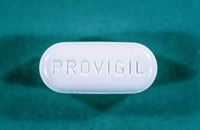Advertisement
Grab your lab coat. Let's get started
Welcome!
Welcome!
Create an account below to get 6 C&EN articles per month, receive newsletters and more - all free.
It seems this is your first time logging in online. Please enter the following information to continue.
As an ACS member you automatically get access to this site. All we need is few more details to create your reading experience.
Not you? Sign in with a different account.
Not you? Sign in with a different account.
ERROR 1
ERROR 1
ERROR 2
ERROR 2
ERROR 2
ERROR 2
ERROR 2
Password and Confirm password must match.
If you have an ACS member number, please enter it here so we can link this account to your membership. (optional)
ERROR 2
ACS values your privacy. By submitting your information, you are gaining access to C&EN and subscribing to our weekly newsletter. We use the information you provide to make your reading experience better, and we will never sell your data to third party members.
Safety
‘Pay For Delay’ Pharma Deals Stand
Pharma: But agreements between brand-name owners and generic drug makers can be challenged
by Glenn Hess
June 20, 2013
| A version of this story appeared in
Volume 91, Issue 25

Branded-drug makers have been paying generics manufacturers to abandon challenges to the branded-drug patents to keep cheaper generics competitors off the market for several years. Last week, the Supreme Court ruled that such “pay for delay” deals can sometimes violate antitrust laws, but the arrangements are not always illegal. Lower courts can evaluate them on a case-by-case basis.
In a 5-3 decision, the high court ruled that the Federal Trade Commission (FTC) may challenge the legality of such agreements. The justices overturned a ruling by the U.S. Court of Appeals for the 11th Circuit that said the agreements were legal as long as they do not keep a generic drug off the market beyond the term of the brand-name drug’s patent.
Justice Stephen G. Breyer, who wrote the majority opinion, said the deals still could be anticompetitive. Compensation “for staying out of the market keeps prices at patentee-set levels and divides the benefit between the patentee and the challenger, while the consumer loses,” he wrote.
The decision leaves it to the lower courts to determine whether the benefits of a particular settlement agreement outweigh the harm to consumers.
The ruling largely vindicates the position taken by FTC, which estimates that the settlements cost consumers about $3.5 billion annually in higher drug costs. Calling the ruling a “significant victory” for U.S. consumers, FTC Chairwoman Edith Ramirez says the court “has made it clear that pay-for-delay agreements … are subject to antitrust scrutiny.”
C. Scott Hemphill, a professor at Columbia Law School, says he expects “fewer of these deals in the future, given the prospect of antitrust litigation from both enforcement agencies and private plaintiffs.”
The pharmaceutical industry maintains that these settlements actually speed lower-cost generics to pharmacy shelves, which saves consumers money.
“The fact is that patent settlements have resulted in hundreds of generic options coming to market—on average nearly five years in advance of the brand patent’s end date,” says Ralph G. Neas, president of the Generic Pharmaceutical Association, an industry trade group. “This means billions of dollars in savings for consumers and the health system.”




Join the conversation
Contact the reporter
Submit a Letter to the Editor for publication
Engage with us on Twitter